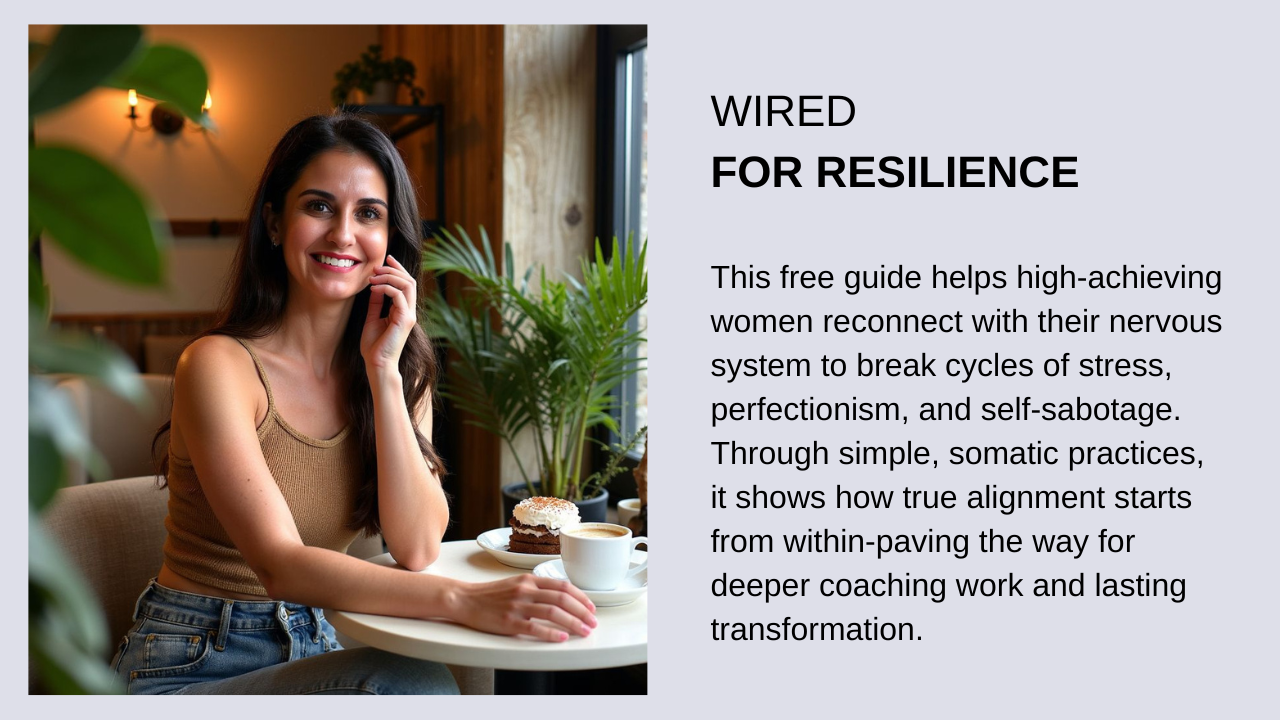Nervous System Reset: A 5-Minute Morning Routine
Nov 02, 2025
Chronic everyday stress keeps the autonomic nervous system biased toward sympathetic (“fight/flight”) activation, undermining concentration, sleep, mood and long-term cardiometabolic health (Gallup, 2024). Globally, 37% of adults reported feeling a lot of stress the day before being surveyed in 2024, and 39% reported a lot of worry an emotional burden that makes brief, repeatable nervous-system tools especially practical (Gallup, 2024). Fortunately, a growing body of clinical research shows that short, daily practices especially focused breathing, a brief body scan, and very short movement shift physiology in measurable ways: they raise heart-rate variability (HRV), lower reported stress, and can reduce stress hormones for at-risk groups (Fincham et al., 2023).
Below I summarise the evidence and give a five-step, five-minute morning routine you can use every day. The “why” is short: slow, diaphragmatic and resonance breathing activates vagal pathways and raises HRV within minutes; micro-movement lifts mood quickly; and one-minute mindfulness anchors attention so stress doesn’t snowball through the day (Fincham et al., 2023; Steffen et al., 2017; Basso & Suzuki, 2017).
Key evidence
- Meta-analysis of randomized trials found breathwork produced a small-to-medium reduction in self-reported stress (effect size g ≈ −0.35) and similar small-to-medium reductions in anxiety and depressive symptoms across studies (Fincham et al., 2023).
- Trials of resonance (slow, ~4.5–6 breaths/min) or HRV-focused breathing show measurable increases in HRV and decreases in blood pressure and subjective stress after single sessions or short training programs (Steffen et al., 2017; Chaitanya et al., 2022).
- Meditation and mindfulness interventions show reductions in physiological stress markers (cortisol) in at-risk samples and marginal effects in community samples, indicating physiological impact when stress levels are elevated (Koncz et al., 2021).
- Acute, short bouts of exercise reliably improve mood and reduce stress immediately after activity; effects can be seen after very brief activity and accumulate with repetition (Basso & Suzuki, 2017).
Taken together, short breathing, micro-movement and micro-mindfulness are evidence-based, low-risk strategies that produce measurable changes in autonomic markers and subjective stress and they fit into five minutes.
A 5-Minute Morning Nervous System Reset
Do this shortly after waking, before you check phone or email. Each step ≈ 60 seconds.
- Ground & scan — 60 seconds
Sit on the edge of the bed or a chair with both feet planted. Close your eyes if comfortable. Mentally scan from feet → legs → hips → torso → shoulders → neck → face. Simply notice tension; name it (“tight shoulders”) and let the judgment go. Short body scans orient attention inward and reduce reactivity (Koncz et al., 2021). - Diaphragmatic resonance breathing — 60 seconds
Place one hand on your belly and one on your chest. Inhale through the nose for ~4 counts (belly rises), exhale for ~6 counts. Repeat for 60 seconds (about 5–6 breaths). Slow, resonance breathing increases HRV and engages parasympathetic (vagal) tone within minutes (Steffen et al., 2017; Fincham et al., 2023). - Exhale-emphasis breath — 60 seconds
Shift to a slightly longer exhale: inhale 4 seconds, exhale 7–8 seconds (or inhale 4, hold 1, exhale 6–8). Extending the exhalation preferentially stimulates parasympathetic activity and speeds physiological calming (Steffen et al., 2017). - Energizing micro-movement — 60 seconds
Stand and shake out hands and arms for 10–15 seconds; do two gentle hip swings or one standing forward reach + overhead reach sequence. Brief activity enhances mood and blunts stress responses even when very short; it also reduces morning grogginess and supports cognitive readiness (Basso & Suzuki, 2017). - Anchor intention or gratitude micro-mindfulness — 60 seconds
Sit again. State one simple intention for the day in one sentence (e.g., “Today I’ll respond with calm focus”) or silently name three small things you’re grateful for (20 seconds each). This brief cognitive framing reduces rumination and helps the vagal changes from breathing “stick” into behaviour (Fincham et al., 2023; Koncz et al., 2021).
Practical tips & realistic expectations
Do it daily for best results. Repeated short practice produces larger, more reliable changes in HRV and stress than sporadic use (Chaitanya et al., 2022).
- Measure simply. Rate your stress 1–10 before and after the routine for a week, or use an HRV-enabled wearable if you already own one to observe objective shifts (Fincham et al., 2023).
- Keep intensity gentle. If you have cardiopulmonary disease, uncontrolled hypertension, or serious psychiatric conditions, check with your clinician before starting breath-training or new exercise (Steffen et al., 2017).
- Small changes add up. The evidence shows micro-practices accumulate: short, repeatable interventions are scalable and accessible for busy mornings (Basso & Suzuki, 2017).
Why this works
Breath controls baroreflex and respiratory sinus arrhythmia and is a fast lever for vagal activation: slowing the breath to a resonance range (commonly ~4.5–6 breaths/min) amplifies HRV and reduces blood-pressure reactivity, while exhale-focused cycles further favour parasympathetic tone; brief movement elevates mood via neurochemical and hemodynamic pathways; and micro-mindfulness anchors attention and reduces cortisol reactivity in at-risk samples (Steffen et al., 2017).
Bottom line is
You don’t need long meditations or expensive gadgets to shift your nervous system. Five evidence-based minutes each morning body scan, resonance breathing, an exhale-focused breath, short movement, and a one-sentence intention leverages documented physiological pathways (vagal activation, HRV improvement, mood-related neurochemistry) and reduces daily stress. Try it for seven consecutive mornings and note subjective stress and focus; many trials show measurable changes in mood and autonomic markers within days to weeks (Fincham et al., 2023; Chaitanya et al., 2022).
References
Basso, J. C., & Suzuki, W. A. (2017). The effects of acute exercise on mood, cognition, neurophysiology, and neurochemical pathways: A review. Brain Plasticity, 2(2), 127–152.
Chaitanya, S., Datta, A., Bhandari, B., & Sharma, V. K. (2022). Effect of resonance breathing on heart rate variability and cognitive functions in young adults: A randomised controlled study. (PMCID: PMC8924557).
Fincham, G. W., Strauss, C., Montero-Marín, J., Cavanagh, K., et al. (2023). Effect of breathwork on stress and mental health: A meta-analysis of randomised-controlled trials. Scientific Reports, 13, Article 432.
Gallup. (2024). State of the world’s emotional health: Tracking the world’s emotional health (Global Emotions). Gallup World Poll.
Koncz, A., Demetrovics, Z., & Takács, Z. K. (2021). Meditation interventions efficiently reduce cortisol levels of at-risk samples: A meta-analysis. Health Psychology Review, 15(1), 56–84.
Steffen, P. R., Austin, T. P., DeBarros, J., & Brown, T. (2017). The impact of resonance frequency breathing on measures of heart rate variability, blood pressure, and mood. Frontiers in Public Health.
Stay connected with news and updates!
Join our mailing list to receive the latest news and updates from our team.
Don't worry, your information will not be shared.
We hate SPAM. We will never sell your information, for any reason.


